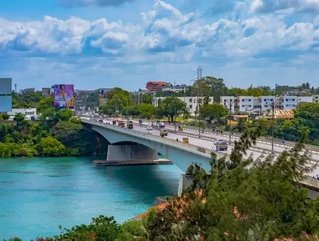COVID-19: Kenya receives US$206mn loan from AfDB

With the total number of cases continuing to rise within Africa, we look at how AfDB is supporting Kenya with a US$206mn loan to battle the virus.
To support the government of Kenya’s efforts to respond to the current outbreak of COVID-19 and mitigate the related economic, health and social impact, the Board of Directors at the African Development Bank (AfDB) has approved a US206mn loan for Kenya.
The loan follows a request made by the government of Kenya as part of its emergency response intervention, to help contain the virus and will provide additional resources to Kenya as the country strives to contain the spread of the pandemic and cope with the impact.
In supporting the country, the bank will strengthen the national health system providing the ability to effectively respond to the pandemic, as well as build economic resilience and ensure a quick recovery. The Bank’s loan will also be used to support poor and vulnerable people who have been negatively affected by COVID-19.
“We are very pleased to join other development partners in supporting the Government of Kenya’s efforts in mitigating the financial impact of the pandemic, especially in terms of the country’s expenditure in the health, social and economic sectors. The next step will focus on helping build resilience for post COVID-19,” commented Nnenna Nwabufo, Acting Director General for East Africa, AfDB.
Since Kenya’s first COVID-19 infection - confirmed on 12 March 2020 - the total cases has risen to 1,348 - as of 26 May 2020 - with the number of deaths totalling 52 and the number of recoveries at 405.
Currently within the region the pandemic is placing significant pressure on the healthcare system which is already stretched, as well as disrupting supply chains and causing job losses in the tourism, hospitality, horticulture and airline industries. In addition informal and self-employed workers are also losing their livelihoods due to the impact of COVID-19.
As a result of demand and supply shocks, Kenya’s real GDP growth has been projected to fall between 0.6 and 1.4% from the initial 2020 projection of 6%.
Within Kenya the government’s response to the outbreak has been swift, covering a range of measures including health-related containment measures, protection of the poor and vulnerable, provision to support local businesses and to sustain jobs. The addition of the African Development Bank’s intervention, via the COVID-19 Emergency Response Support Program, has been designed to support these measures further.
With Kenya facing the addition of its worst swarm of locusts in 70 years, the country is battling additional food security threats. In April the bank extended an emergency grant to help those within the East and Horn of Africa - including Kenya - that are combating this food security.
SEE ALSO:
For more information on business topics in Europe, Middle East and Africa please take a look at the latest edition of Business Chief EMEA.






